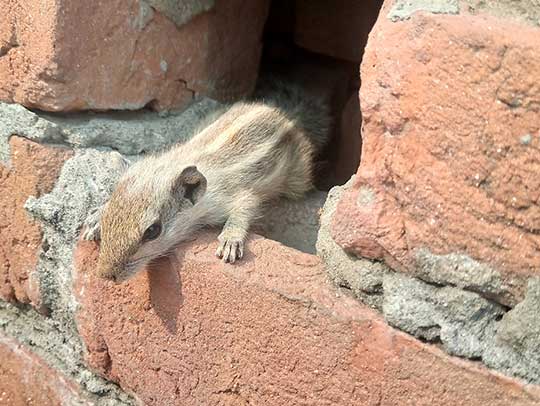
If you’re hearing scratching and rustling sounds coming from your walls at night, chances are a squirrel has gotten inside and decided to make itself a nest in the walls of your home. Squirrels are common invasive rodents that can cause significant structural and electrical damages to your residential home’s interior if they are not quickly removed. Furthermore, your squirrel removal cost can also increase the longer they’re left in your home.
Here are a few squirrel in wall removal methods that you can try to remove nuisance squirrels from your walls.
Why Squirrels Nest in Walls
Squirrels like nesting in wall cavities because they provide a warm, dark, and narrow space that is similar to the tree holes where squirrels normally build their nests. Since they won’t be disturbed, it’s the perfect place to raise their young.
Effective Squirrel in Wall Removal Tactics
- Squirrel Exclusion – Scan the exterior of your home for common squirrel entry points, such as damaged vents and cracks in your foundation. If there are multiple exposures, seal off all of them but one to force the critters out. When the squirrels go outside to forage for food, seal the remaining hole in your wall to keep them from returning.
While this method can help to exclude squirrels from your walls, there is a chance that the invasive squirrels gave birth inside your walls. Squirrel maternity season is typically in February or March and again in June or July. So, it’s important to check for babies in the walls before sealing entry points so you don’t leave them behind.
- Squirrel Trapping – You can also try placing live traps outside their entryways to capture the squirrels and safely release them away from your home; however, attempting to trap a wild animal can be very dangerous if you lack the training and equipment needed to protect you and the animal from harm.
The Problem with DIY Squirrel Removal
Evicting squirrels from your home is more complicated than you think. Some of the issues include:
- Accessibility – It’s hard to reach squirrels once they’ve made it inside your walls. If you can’t get inside the wall cavity, you may have to cut holes in your walls to help you find them.
- Diseases and parasites – While they’re normally docile critters, squirrels can bite or scratch when they sense danger and transmit infectious diseases and parasites to you in the process. In addition to fleas and ticks, squirrels are also known carriers of rabies.
Professional Squirrel Removal Cost Cutters
If you are in need of affordable squirrel in wall removal services, call the experienced squirrel removal specialists at Critter Control® of Pittsburgh. Our expert team of wildlife removal professionals use an effective four-step method to remove squirrels safely and humanely from your property and keep them out for good. Our process includes inspection, removal, exclusion, and restoration methods that will return your home to its pre-squirrel infestation condition.
To schedule your inspection and receive a free squirrel removal estimate, call us today at 412-767-4067.







